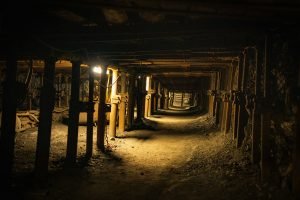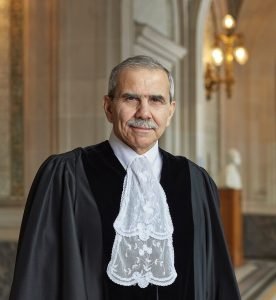Refugees from Climate Change and Natural Disasters
The legal definition of a refugee, set out in a 1951 convention, is a person who flees their country and has a well-founded fear or persecution due to race, religion, nationality, political opinion, or social group should they return.
Jacob and his sons fled to Egypt because of famine. Although such famine may have taken a heavy toll in life and created extreme hardship, obviously a natural disaster is not a form of political persecution. Therefore it would not entitle Jacob’s family to the legal protections afforded to today’s asylum seekers and refugees.
Today there is weighty scientific evidence that human actions are causing climate change. Climate change results in rising sea levels, meaning that low lying coastal communities become uninhabitable. Climate change may also increase extreme weather events such as hurricanes and droughts which uproot people.
So some of these seemingly natural disasters may be partially caused by political and economic decisions made by various countries around the world. At present there is no legal framework or status for people fleeing their homes due to natural disasters or climate change. Locations most vulnerable to climate change may be in countries that have little to do with emitting greenhouse gasses or other climate change causes. What obligations do other countries have to provide them shelter? This area of human rights law needs to be considered.
More on the Difficulties People Fleeing Climate Change or Natural Disasters Have in Being Recognized as Refugees
An article titled ‘Climate Change Is Driving People From Home. So Why Don’t They Count as Refugees?’ from the New York Times.
An article on protecting climate refugees from the Environmental Justice Foundation
‘Where Will the Climate Refugees Go?’ an article from Al Jazeera which examines the legal difficulties people relocating due to climate change have in being recognized as refugees.
Human Rights Haggadah Blog

The Real Human Rights Violation Is Not Offering Gazans a Choice
By now most of us are familiar with Trump’s stunning comments about relocating the current population from Gaza and rebuilding it as ‘The Riviera

Condemn Israel, Starve Miners: South Africa Makes a Mockery of Human Rights
According to the Talmud, Rabban Gamliel banned from the study hall any student whose deeds were not in keeping with their values (Brachot 28a). This

Hostage Agreement Says Human Rights Are Dirt
While I of course share in the joy at the return of the first three hostages, I’m also saddened because the agreement that freed them

Judge Rules Against Israel One Day, Becomes Prime Minister of Lebanon the Next
Of course the ceasefire deal is the main topic currently in the news, but the abrupt resignation of ICJ President Nawaf Salam to become Prime
